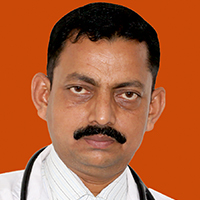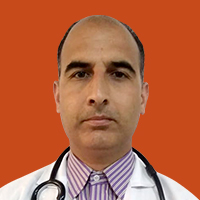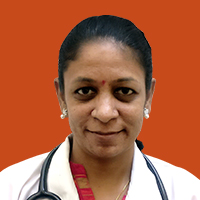

Successful Treatments
Clinics
Doctors
FAQs
The cause of Psychosis is not entirely known. It is, however, believed to be a result of genetics, biology, and other environmental forces.
Yes, Psychosis is a very serious mental disorder that is likely to impact your quality of life very significantly.
This is possible with a combination of medications, therapy, and lifestyle changes.
Ayurvedic treatment provides a holistic approach to controlling Psychosis by eliminating the root cause behind your symptoms. It brings balance and clarity to one's life.
Managing Psychosis is not a single-time performance, and in different personalities, the time may be different to find the most appropriate treatment plan.
It would be wise to consult with your doctor before taking Ayurvedic medicines with other prescribed medicines.
It is advised to consult with a doctor before taking any Ayurveda medication, whether during or post-pregnancy.
Ayurvedic medicines are relatively safe, but sometimes minor side effects may be observed since every individual’s body behaves uniquely to the medicines.
The frequency and dosage of Ayurvedic medicines for Psychosis will be prescribed based on the reports of the preliminary analysis of your condition during an authentic Ayurvedic treatment.
Yes, Ayurvedic treatment can also be taken in conjunction with some other therapies, which include cognitive-behavioral therapy or family therapy.
Moral support is quite crucial during recovery from mental illnesses. You may support the patient through the display of patience, compassion, and empathy.
Lifestyle modification includes regular exercise, a healthy diet, stress management activities, and adequate sleep.
If you or your loved ones are suffering from psychotic symptoms, seek professional help immediately.
Actually, no, it's not; however, it can be effectively managed with treatments that are combined.
Top Ayurveda Doctors
Our Happy Patients
Social Timeline
Blogs
Related Disease
- Ayurvedic Treatment for Anxiety
- Ayurvedic Treatment for Weakness and Fatigue
- Ayurvedic Treatment for Depression
- Ayurvedic Treatment for Child Bed-wetting
- ayurvedic treatment for bipolar disorder
- Ayurvedic Treatment for Psychosis
- Ayurvedic Treatment for Schizophrenia
- Ayurvedic Treatment for Sleep Apnea
- Ayurvedic Treatment For Insomnia
- Get Ayurvedic Treatment for Agoraphobia
- Ayurvedic Treatment for Autism
Latest Blogs
- योनि की दुर्गंध से छुटकारा पाने के 4 आसान घरेलू उपाय | Jiva Ayurveda
- क्या अचानक बढ़ता दर्द और जोड़ों की लालिमा गाउट की निशानी है? शरीर में जमा अम्ल की भूमिका समझिए
- Migraine और भोजन का समय: देर से खाना सिरदर्द को क्यों बढ़ा देता है?
- क्या एंटीबायोटिक लेने के बाद पाचन पूरी तरह बिगड़ गया? आयुर्वेद के अनुसार Colitis के उपचार जानें
- अगर मामूली आहार भी पाचन तंत्र सहन न कर पाए तो Colitis को हल्का क्यों नहीं मानना चाहिए? आयुर्वेदिक दृष्टि से जानें
- लंबे समय से सक्रिय Colitis क्यों शरीर की रिकवरी क्षमता को कमज़ोर कर देती है? आयुर्वेदिक नज़र से जानें
- नॉर्मल एंडोस्कोपी, नॉर्मल रिपोर्ट्स… फिर भी रोज़ दर्द—IBS में गलत इलाज कैसे बीमारी को Chronic बना देता है! आयुर्वेदिक उपचार समझें
- क्या बाहर का खाना या मसालेदार भोजन आपके IBS को तुरंत ट्रिगर कर देता है? आयुर्वेदिक दृष्टि से समझें और कब Ayurvedic doctor से मिलना चाहिए जानें
- IBS में दवाइयाँ काम क्यों नहीं करतीं? आयुर्वेदिक कारण और उपचार समझें
- कभी कब्ज़, कभी दस्त: यह सिर्फ पाचन नहीं, पूरे सिस्टम का असंतुलन हो सकता है! जानें कब Ayurvedic doctor से मिलना ज़रूरी हो जाता है
- क्या सर्दियों में दवाइयों के बावजूद साँस पूरी नहीं खुलती? अस्थमा की जड़ आयुर्वेद से समझें
- क्या धूल, धुआँ या परफ्यूम से तुरंत साँस लेने में तकलीफ़ होती है? Asthma के ट्रिगर आयुर्वेद की नज़र से समझें
- सर्दियों में अस्थमा क्यों ज़्यादा बिगड़ जाता है? ठंडी हवा और कफ-वृद्धि का आयुर्वेदिक कारण जानें
- क्या ठंडी हवा लगते ही सीने में जकड़न और साँस लेने में परेशानी होती है? अस्थमा को आयुर्वेद की नज़र से जानें
- क्या सुबह उठते ही बलगम के साथ खाँसी आना अस्थमा का संकेत है? आयुर्वेद से समझें
- क्या लंबे समय तक लैक्सेटिव का उपयोग आपकी कब्ज़ को और जटिल बना रहा है? आयुर्वेदिक समाधान जानें
- क्या गैस, पेट फूलना और सिरदर्द का साथ में होना Chronic Constipation का क्लासिक पैटर्न है? आयुर्वेदिक व्याख्या समझें
- क्या सुबह नींद खुलते ही पेट साफ न होना ‘धीमी अग्नि’ का संकेत है? दीर्घकालिक कब्ज़ में आयुर्वेदिक कारण जानें
- क्या लंबे समय तक बैठकर काम करने से आपकी कब्ज़ लगातार बढ़ रही है? आयुर्वेदिक दृष्टिकोण देखें
- क्या कब्ज़ के चलते आपकी नींद, ऊर्जा और पाचन सब प्रभावित हो रहे हैं? आयुर्वेद में इसके मूल कारण और ज़रूरी उपाय जानें
Ayurvedic Doctor In Top Cities
- Ayurvedic Doctors in Bangalore
- Ayurvedic Doctors in Pune
- Ayurvedic Doctors in Delhi
- Ayurvedic Doctors in Hyderabad
- Ayurvedic Doctors in Indore
- Ayurvedic Doctors in Mumbai
- Ayurvedic Doctors in Lucknow
- Ayurvedic Doctors in Kolkata
- Ayurvedic Doctors in Patna
- Ayurvedic Doctors in Vadodara
- Ayurvedic Doctors in Ahmedabad
- Ayurvedic Doctors in Chandigarh
- Ayurvedic Doctors in Gurugaon
- Ayurvedic Doctors in Jaipur
- Ayurvedic Doctors in Kanpur
- Ayurvedic Doctors in Noida
- Ayurvedic Doctors in Ranchi
- Ayurvedic Doctors in Bhopal
- Ayurvedic Doctors in Ludhiana
- Ayurvedic Doctors in Dehradun
































